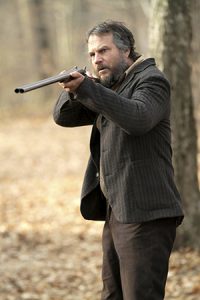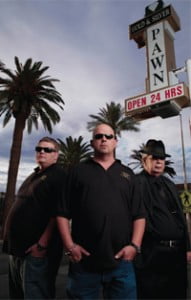The bright side
By Clive Whittingham
25-10-2012
At Sheffield Doc/Fest in June, independent documentary maker Peter Wintonick stole the show on the opening night with his five-minute utopian view of the future of factual programme making.

Peter Wintonick
Taking to the stage with tongue firmly in cheek, Wintonick told delegates: “In the future, the words ‘documentary’ and ‘democracy’ will fuse together. Documentary as an artform will be reborn. Access to the system will be blown wide open. Fairtrade media will inform the future. Freedom will be the new currency and will be issued in units of love and tenderness. Fiction will cease to exist because people will find pleasure in non-fiction.
“Documentaries will save the world. Documentary makers will be appreciated and paid for their services. Robots will direct all documentaries allowing us to take a well-deserved rest and happiness will rule, so there will no longer be a need for sad documentaries, or any documentaries at all, but we will continue to make them out of habit.”
Travelling around the factual circuit this year, I’ve listened to concerns and worries old and new from producers, distributors and broadcasters. Money, or lack of it, is always a recurring theme in factual television – it always seems to be the first to suffer budget cuts – but that’s now combined with a fear that broadcasters are less willing to take on risky programmes or fledgling productions in these straightened economic times.

Hatfields & McCoys
By ‘playing safe’ with character-led returnable series – National Geographic has made a real point of stating its aim to commission these in 2012 – critics are asking where the facts are in factual TV these days. At History Makers International in New York in January, the question of ‘Where is the history on History?’ came up as executives from A+E Networks sang the praises of Pawn Stars and Swamp People.
At Mipdoc in April, Mette Hoffman Meyer, head of documentaries at Danish pubcaster DR, supported by BBC Storyville editor Nick Fraser, railed against the boom in interest groups and NGOs funding docs like Kony 2012. At Sheffield, they said it was always in the best interests of a doc to draw funding exclusively from independent public service channels.
But while we’ve not quite arrived at Wintonick’s land of milk and honey just yet, is factual TV really in such a bad place at the moment?
It’s easy to say Pawn Stars dumbs down, but the show is attracting audiences that would previously never have been thought possible for a programme about antiques. And by doing things a slightly different way, History drew a record-breaking cable audience of 13.9 million to the premiere of fact-based drama Hatfields & McCoys.
The one-off documentary is a long way from dead – in fact, it’s getting more ambitious. Rather than make a simple programme with talking heads and archive footage from the Second World War about the Dambusters raids and an attempted escape from Colditz Castle by prisoners of war, UK indie Windfall Films went out and recreated the events. They built a dam and a bouncing bomb and staged a raid. They assembled a glider at Colditz and flew it off the battlements for Channel 4, Discovery and others.

Pawn Stars
This is revelatory stuff. In this factual section of C21, we often report on historical anniversaries and how broadcasters are planning for them. Werner Herzog proved with his Death Row docs, soon to be followed by the television premiere of Into the Abyss, that a market still exists for traditional high-quality docs as well.
And while nobody wants to see a documentary on marine conservation from Exxon or BP, should documentary makers not be applauded and encouraged for getting ambitious projects off the ground even if a pubcaster refuses to commission it? One of my favourite docs this year, Four Year Plan from London indie Ad Hoc Films, would never have received funding for four years of filming at a football club from a PSB and needed the cooperation of the club’s owners to go ahead. Ultimately, BBC2 and TV2 picked it up and aired it, proving it can be done successfully.
Times are tough but there’s a lot to like in factual at the moment. And anyway, as Esther Van Messel, CEO of Swiss documentary distributor First Hand Films, eloquently observed at Doc/Fest: “Fiction is for sissies.”
















.jpg)




























